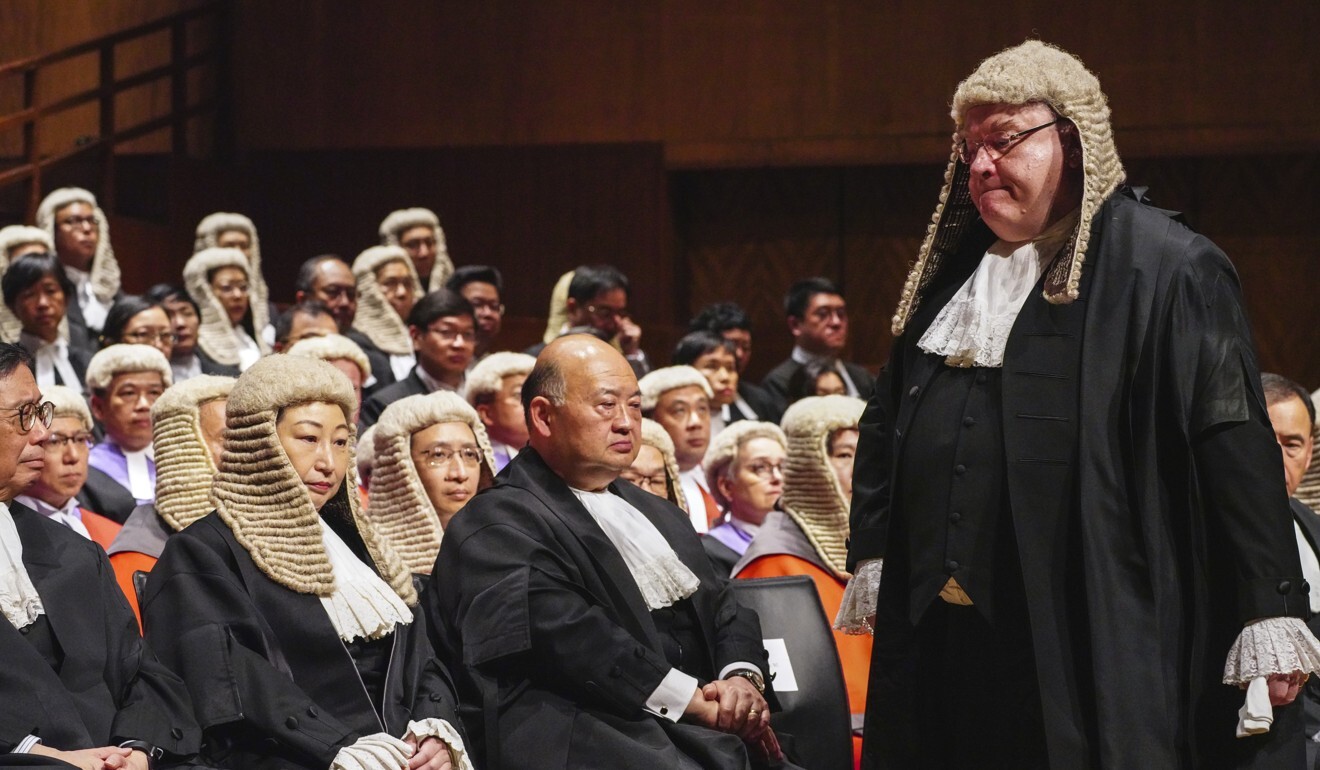
Hong Kong education chief denies changes to Liberal Studies textbooks amount to political censorship
- Minister Kevin Yeung says removing ‘separation of powers’ from some teaching materials brings them in line with fact
- Removal of descriptions of June 4 crackdown in one text was the decision of the publisher, he says, noting the vetting scheme was voluntary
Hong Kong’s education minister has dismissed claims that controversial changes to Liberal Studies textbooks amounted to political censorship, saying removing the phrase “separation of powers” from descriptions about the city’s politics was a decision rooted in fact.
Secretary for Education Kevin Yeung Yun-hung also defended the bureau’s voluntary vetting scheme, arguing the presentation of some concepts in the revised textbooks was “much more accurate than before”.
Liberal Studies, which was introduced in 2009 as a compulsory subject for senior secondary pupils to strengthen their critical thinking, has become a controversial topic in recent years as some teaching materials were deemed biased and blamed by pro-Beijing figures for radicalising students.

Most of the Liberal Studies textbooks used in the city’ s classrooms come from six publishers, all of which took part in the bureau’s voluntary consultancy service rolled out last year. The reviews are carried out by a team made up of inspectors, university academics and education professionals. The first batch of revised ones are expected to go into use when classes resume next month.
The phrase “separation of powers” was deleted from the module about contemporary Hong Kong by at least two publishers, while the definition of civil disobedience has added emphasis that participants should expect to face legal consequences.
Responding to questions at a press conference on Monday, the minister brushed off accusations by some teachers and students the bureau had engaged in censorship.
For some basic concepts, such as separation of powers, this is about a statement of facts
“I would not say it’s political screening,” Yeung said. “We look at the textbooks already in the market and provide some professional advice to the publishers. And you can see that the publishers adjust the textbooks by themselves. For some basic concepts, such as separation of powers, this is about a statement of facts. There is no separation of powers in Hong Kong, no matter [whether] it was before [the handover in] 1997 or after 1997 under the Basic Law.”
The idea that Hong Kong’s executive, legislative and judicial powers operate independently has been debated over the years. In 2014, Chief Justice of the Court of Final Appeal Geoffrey Ma Tao-li said the Basic Law, the city’s mini-constitution, “sets out clearly the principle of the separation of powers between the legislature, the executive and the judiciary” and the different roles they played.
But Beijing and Hong Kong officials later said the city’s governance model was not based on a “separation of powers” and was “executive-led” according to the Basic Law.
Lau Kam-fai, president of the Hong Kong Liberal Studies Teachers’ Association, said many teachers had been “confused” over the notion of separation of powers, pointing to the different interpretations from Ma and government officials.
Publishers make changes to Liberal Studies textbooks after voluntary review
“Although the Basic Law does not state the term ‘separation of powers’, the phrase ‘executive-led’ is also not stated there,” Lau said. “What should teachers do when students raise questions over the difference?”
Other changes included the removal of multiple political cartoons, as well as descriptions of how troops were sent to remove demonstrators during the pro-democracy crackdown in Tiananmen Square on June 4, 1989, in one textbook.
Yeung said: “Even when we are talking about more sensitive examples such as June 4, various publishers have different arrangements, as some textbooks included the content while some did not. Our consultancy scheme did not specifically require publishers to include or omit such details, as they have been given flexibility to do so.
“People should not focus only on what was being removed in the revised versions. Before the scheme, these textbooks had never undergone vetting.”
The Professional Teachers’ Union and newly formed student group Education Breakthrough have accused the bureau of engaging in political censorship with the revisions and voiced concerns that class discussions will be restricted.
An online petition launched earlier this month by Education Breakthrough, along with the Progressive Teachers’ Alliance and Hong Kong Educators Alliance, demands education authorities retract the amendments and disclose vetting criteria. It had drawn more than 10,000 signatures as of Monday.

